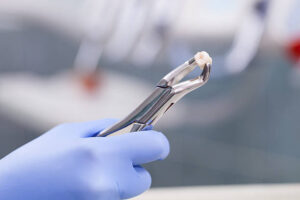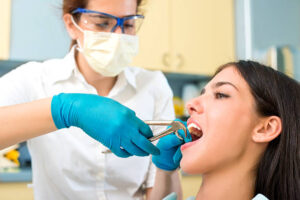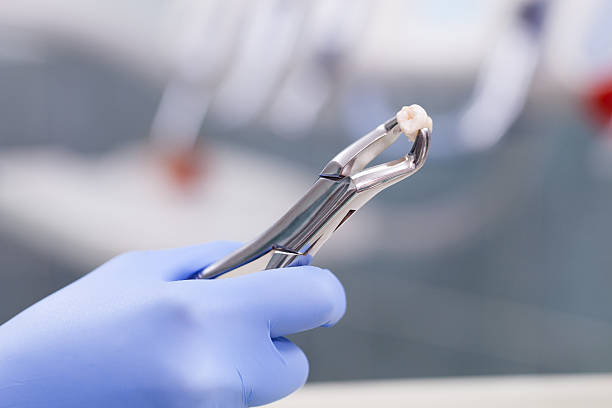Dental extractions can seem daunting, but understanding the process and aftercare can help ease your worries. We’re here to demystify the world of dental extractions, shed light on whether they really hurt, and give you the lowdown on how to avoid them. Let’s make your dental journey smoother and more comfortable!

Do Dental Extractions Hurt?
There’s good news! Thanks to modern anesthetics, patients usually feel no more than a slight pressure during a dental extraction. Your dentist will use local anesthesia to numb the area, so you shouldn’t feel any pain. However, you might experience some discomfort during the healing process, which can be managed with over-the-counter pain relievers or prescribed medications.
Preparation for Dental Extraction
Before the extraction, your dentist will take an X-ray of your tooth. This helps them to understand the shape and position of the tooth and plan the best way to remove it. You’ll be asked about your medical history and any medications you’re currently taking, as some conditions and medicines can affect healing or bleeding.
The Extraction Procedure
The extraction procedure begins with the administration of local anesthesia. Once the area is numb, the dentist will use a tool called an elevator to loosen the tooth. Then, they’ll use forceps to remove the tooth. For more complex cases, such as impacted teeth, a surgical extraction may be necessary.
will use a tool called an elevator to loosen the tooth. Then, they’ll use forceps to remove the tooth. For more complex cases, such as impacted teeth, a surgical extraction may be necessary.
Dental Extractions Aftercare and Recovery
After the extraction, you’ll bite down on a gauze pad for about 30 to 45 minutes to help form a blood clot and start the healing process. It’s essential to avoid smoking, rigorous rinsing, and using a straw for 24 hours, as these can dislodge the clot and delay healing. You should stick to soft foods and gradually reintroduce harder foods as your mouth heals.
How to Avoid Dental Extractions
While some extractions (like those for wisdom teeth) are hard to avoid, maintaining a robust oral health routine can help prevent many others. Here are some simple steps you can take:
- Brush and Floss Regularly: Good oral hygiene is the foundation of a healthy mouth. Brush twice a day and floss daily to keep cavities at bay.
- Regular Dental Check-ups: Regular check-ups and cleanings can catch dental issues early before they require extraction.
- Balanced Diet: Eating a diet rich in vitamins and minerals can help to strengthen your teeth and prevent decay.
- Mouth Guards for Sports: If you’re an athlete, wearing a mouth guard can protect your teeth from damage or trauma during sports activities.
While dental extractions might seem intimidating, they are generally pain-free procedures. Proper care before and after the extraction can ensure a smooth recovery. However, remember, prevention is better than cure, and maintaining good oral hygiene is key to avoiding the need for extractions in the first place.




